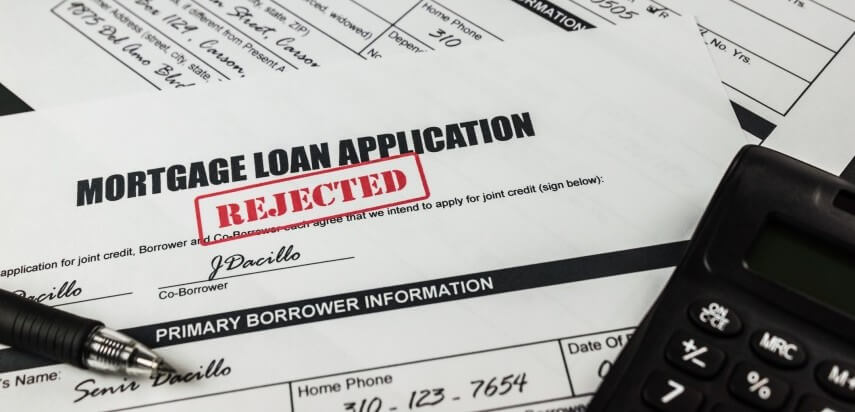
Getting a loan from a commercial lender in this day and age is always a nightmare for anyone. Even when you have all the necessary documents, huge savings for down payments, and an almost perfect credit score, the preapproval process for the loan would still be tedious.
The lengthy approval process makes it difficult for investors to secure a loan to purchase an investment property or start a business. As a result, savvy real estate investors and business owners turn to other loan options when seeking funds to build their investment portfolios.
Of the numerous options available, DSCR loans or no income documentation loans are the most favorable option for real estate investors. But, this begs the question, what are DCSR loans, and how can they help entrepreneurs and real estate investors get ahead of the competition in our fast-paced world?
Here’s what you need to know!
What are No Income Documentation Loans?
When you go to a commercial lender to request a loan, the lender usually requires a series of documents to check your eligibility before they can approve you for the loan. These documents include:
Tax return documents
W2 forms
Pay Stubs
Bank statements
List of assets
Credit history
Credit score
Some of these documents are easily obtainable for people working conventional 9 to 5 jobs, allowing them to qualify for loans from most commercial lenders.
However, these documents might be unavailable and overwhelming for entrepreneurs, freelancers, contractors, dentists, and other self-employed individuals. This makes it almost impossible for them to get a loan to secure a home, start a business or invest in real estate opportunities.
No income documentation loans are a type of loan that can be very helpful for those who are self-employed or have other sources of income that are not easily verifiable. Lenders issue these loans without verifying your income, tax returns, or other tedious documents that commercial lenders require. Instead, the lender uses your bank statement and credit score to qualify you for a loan.
For investment properties, the lender would also need the DSCR ratio of the investment property to ascertain the feasibility of the proposed investment and your ability to repay the loan. These types of no-income documentation loans that require a DSCR ratio to determine approval are more specifically known as DSCR loans.
What is a DCSR loan?
A DSCR loan, otherwise known as a Debt Service Coverage Ratio loan, is a Non-QM loan that lenders offer to real estate investors. The lender uses the DSCR of the investment property to determine the property’s future cash flow and the borrower’s ability to repay the loan without having to verify other sources of income.
Lenders who offer DSCR loans are essentially concerned with the income and debt obligations of the property and have no regard for any other unrelated debt obligations the borrower might have.
As a result, investors and entrepreneurs looking to build their investment portfolio through the real estate market use these types of loans rather than going through the tiresome process of commercial banks.
How do you calculate DSCR?
The DSCR of an investment property is calculated by taking the property’s net operating income and dividing it by the proposed mortgage payment plus any other associated debts with the property.
For example, if an investment property has a monthly net operating income of $3,000 and the proposed mortgage payment is $2,000. The DSCR of the property would be 1.5. This is determined by taking $3000 (net operating income) and dividing it by $2000 (Monthly debt obligations).
A DSCR of 1.25 and above is usually what most lenders consider a safe investment, as it indicates that the property can comfortably cover its monthly operating expenses and loan payments.
What are the requirements for a DCSR loan?
There are usually 4 requirements that a borrower must meet to qualify for a DSCR loan.
The first requirement is that the property must have a DSCR of 1.25 or more. This indicates to the lender that the property can comfortably cover its mortgage payments and other associated debts without putting too much strain on the borrower.
The second requirement is that you should have a minimum credit score of 700. This shows that you have a good history of making payments on time and are likely to do so in the future.
The third requirement is that you provide a bank statement for a duration of at least 12 months. This is to show the lender that you have a consistent flow of income and are, therefore, capable of making your monthly loan payments.
The fourth and final requirement is a minimum down payment of 20%. This protects the lender should you default on your loan payments and have to foreclose on the property. It also serves as a way to ensure that you have a vested interest in the property and are more likely to make payments on time and keep up with maintenance and repairs.
What is a good DSCR?
DSCR is calculated to be equal to 1, below 1, or above 1. A property with a DSCR below 1 indicates that the debt obligations of the property are much more than the monthly income coming into the property.
Any investor investing in the property would likely run into debt or need to make some upgrades and improvements to the home to increase the property’s rent and monthly income.
On the other hand, a DSCR of 1 or above indicates property with a healthy cash flow. Such properties are able to generate enough income to cover the debt obligations of the property. They can also yield profits for the investor.
Therefore, considering that real estate investors go into the business to make profits, a good DSCR is a ratio with a minimum score of at least 1.25. Properties with a DSCR of 1.25 are usually considered safe, while those with a DSCR score of 1.5 and above are considered great.
Consequently, properties with a safe DSCR score usually attract reasonable rates and repayment terms. In contrast, those with an excellent DSCR score attract even more competitive rates and favorable loan conditions.
How can a DSCR loan help a real estate investor?
If we could pick a single industry with cut-throat competition, it would be the real estate industry. To succeed as a real estate investor, you need to have an edge over your competition. This means having quick access to the funding needed to scoop up the best properties before your competitors even get wind of it.
A DSCR loan can give you the much-needed funding advantage as it takes a shorter time to process and approve than other types of loans. This is because a DSCR loan only requires the borrower to provide their bank statements for the last 12 months, which is much easier and faster to procure than other types of documentation, such as tax returns.
Moreover, DSCR loans allow you to use the property itself as collateral for the loan. This means you can get access to funding even if you have other debt obligations, as the lender will be more interested in the property than your financial situation.
Furthermore, a DSCR loan can help you save on interest payments as it usually comes with lower interest rates than other types of loans, such as hard money loans. This is because the lender views a DSCR loan as a low-risk investment, as the property itself serves as collateral for the loan, and they are also more confident that you will be able to make their monthly payments on time.
This is because the DSC ratio of the property serves as an indicator of your ability to repay the loan comfortably within the stated time frame. In addition, your credit score also gives the lender insight into your willingness to make payments on your debt obligations, which is why a good credit score is essential before lenders can deem you eligible for a DSCR loan.
To sum it up, a DSCR loan is a great financing option for real estate investors as it is quicker to process and approve, allows you to use the property as collateral, and usually comes with better rates than other Non-QM loans.
Benefits of a DSCR Loan
DSCR loans boast so many benefits over conventional loans and other Non-QM loans. Some of their benefits include:
No income verification required: Because DSCR loans rely on your credit score, bank statement, and DSC ratio of the property, they don’t need you to verify any additional source of income. Instead, the documents listed above indicate your ability to repay the loan and show the lender that you have a positive cash flow into your bank account. This is a great benefit for real estate investors as it allows them access to funding even if they have other debt obligations such as student loans, car loans, or personal loans.
Shorter processing time: DSCR loans usually take a shorter time to process and approve than other types of loans. This is because the lender only needs to review the financial documents of the property and not the borrower’s personal financial situation. As a result, investors looking to close quickly on a loan rely on DSCR loans to leverage their fast approval process.
Higher loan amounts: Because DSCR loans are based on the ability of the property to repay the loan, lenders are often willing to lend a higher loan amount. This is especially beneficial for investors looking to purchase multiple properties or those looking to purchase a high-value property.
Lower interest rates: Interest rates on DSCR loans are often lower than other types of loans because the lender views this loan as low risk. This is because the loan is secured by the property and not the borrower’s personal financial situation. As a result, investors can save on interest payments over the life of the loan.
Who can apply for a DSCR loan?
DSCR loans are not limited to entrepreneurs and self-employed individuals only. Anyone who wants to obtain a loan without having their personal income verified can apply for a DSCR loan as long as they meet the lender’s requirements.
Nevertheless, DSCR loans are most beneficial to:
Real estate investors
Freelancers
Doctors
Lawyers
Contractors
And other individuals with a non-verifiable means of income.
Apply for a DSCR loan today
DSCR loans are an excellent option for real estate investors looking to purchase or refinance investment properties. The benefits of these loans make them a popular choice for those looking for flexible financing options.
Therefore, rather than missing out on investment opportunities due to overwhelming requirements and long approval processes by traditional lenders, you can easily use a DSCR loan to finance your real estate property.
That being said, if you are considering a DSCR loan for your next investment property, be sure to speak with a Mortgage Specialist from Blake Mortgage to see if it is the right fit for your needs. You can also check out our DSCR loan program to learn more about our loan requirements and how we can help you achieve your real estate goals.




